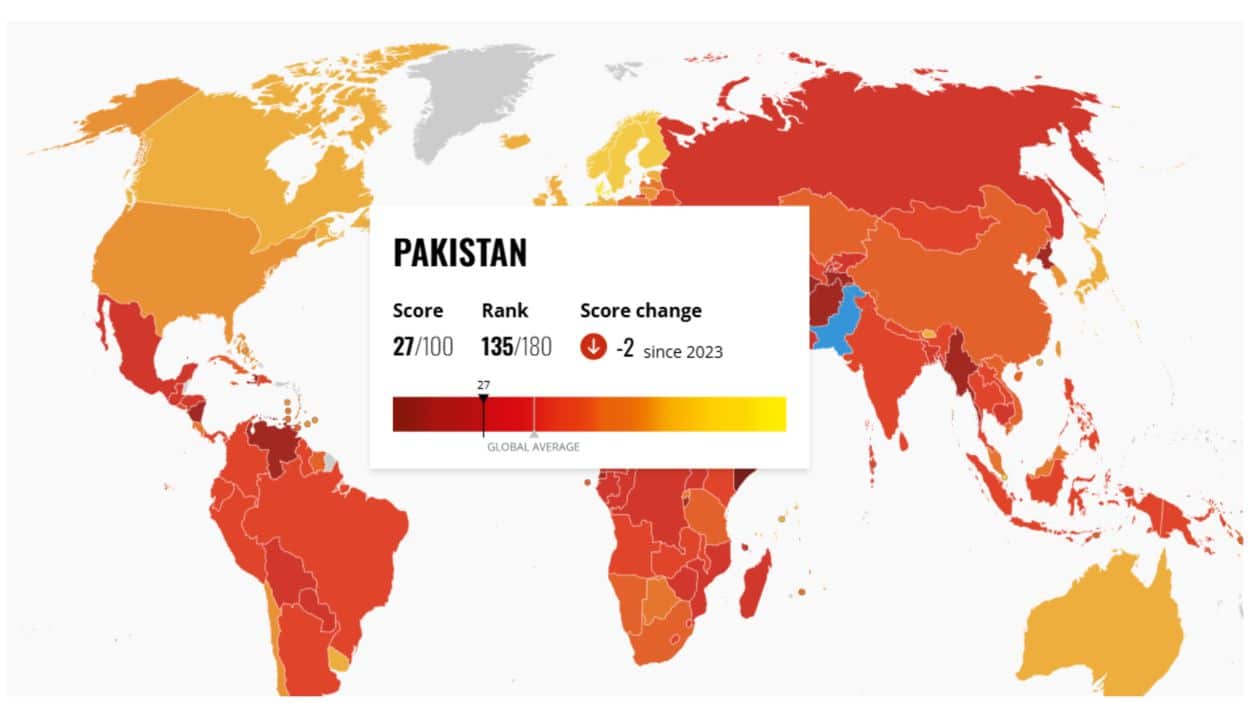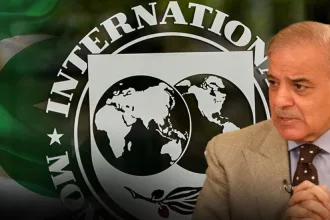Pakistan’s ranking in the 2024 Corruption Perception Index (CPI) has dropped by two positions, placing it 135th out of 180 countries, compared to 133rd in 2023.
A CPI report released on Tuesday by Transparency International Berlin evaluates the perceived levels of public sector corruption in 180 countries and territories, using a scale from zero (highly corrupt) to 100 (very clean). Transparency International Pakistan (TIP) clarified that it does not collect data or calculate the country’s scores.
Justice (retd) Zia Perwez, the Chairperson of TIP, noted that Pakistan’s CPI score fell from 29 in 2023 to 27 in 2024. This two-point decline in score and ranking indicates wider regional patterns, except Oman, China, Turkey, and Mongolia, which maintained their scores.
The report further indicated that corruption levels globally remain alarmingly high, with more than two-thirds of countries scoring below 50. The global average remains at 43, underscoring the urgent need to address corruption, which poses a significant obstacle to effective climate action amidst escalating global warming and extreme weather events.
François Valérian, TI Chairperson, emphasized that corruption undermines development and contributes to declining democracy, instability, and human rights violations. He advocated for prioritising corruption as a long-term international challenge, essential for combating authoritarianism and securing a peaceful, free, and sustainable world.
The report also highlights the interaction between corruption and the climate crisis, noting that corruption complicates the fight against climate change. With record-breaking global warming and a decline in global climate leadership, the need for concrete action against corruption has never been more critical.
Globally, nearly 6.8 billion people live in countries with CPI scores under 50, representing about 85% of the world’s population. Denmark continues to lead the index with the highest score of 90, followed by Finland and Singapore.
Conversely, countries with the lowest scores, such as South Sudan, Somalia, and Venezuela, are mostly fragile and conflict-affected states, significantly impacted by corruption, which exacerbates their climate crises and economic difficulties.
The CPI also highlights the risk of misappropriating climate funds, with countries most vulnerable to climate change scoring below 50, thereby jeopardizing projects designed to mitigate these risks.
This extensive report from Transparency International underscores corruption’s profound global and diverse impacts and the imperative for robust measures to ensure transparency and accountability, particularly in allocating and using climate funds.






